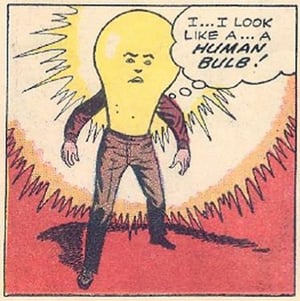Cancer treatment also has had lots of improvements but they aren’t newsworthy if they’re not the Cure to Cancer™️
- 5 Posts
- 80 Comments

 7·3 days ago
7·3 days agoI’ve never seen this before and I don’t know what it’s from

 10·9 days ago
10·9 days agoI met a somewhat old man on a Greyhound a few years ago who was pretty delirious and drifting in and out of sleep. Turns out he had been traveling non-stop for three days, heading from Georgia to his home in Oakland. He had been on a roadtrip with his friends in (what he described as) a cursed Mitsubishi which broke down a final time some 2500 miles from home. All his friends took flights back, but our protagonist did not bring any kind of ID with him and couldn’t take a plane. So there he was, having not slept much at all in 3 days, on the i-10 between Tucson and Phoenix.
He also borrowed my phone to call his wife, who it seemed had not sanctioned his roadtrip at all and was very mad at him. She eventually hung up on him. Handing my phone back to me, he assured me that she wouldn’t stay mad at him after seeing his baby-blue eyes upon his arrival in Oakland.I don’t remember so many of the details, but hearing this guy’s life story and about his impulsive cross-country roadtrip was kinda strangely inspiring.
Do you mean English loanwords or when people switch back & forth?
I also love Yotsubato! :) sometimes it blows my mind that’s it’s the same author as Azumanga Daioh
My #1 favorite is Nausicaa of the Valley of the Wind, it’s several times longer and more complex than the movie.10/10: Nausicaa, Girls’ Last Tour
Almost 10/10: Himegoto: Juukyuusai no Seifuku
9/10: B-gata H-kei, Genjitsu Touhi shitetara Boroboro ni Natta Hanashi (the Nagata Kabi alcoholism memoir), Mata Onaji Yume wo Miteita
Other favorites: Kobayashi’s Dragon Maid, Nichijou, Onimai, Melancholia & Nickelodeon, March comes in like a lion, Onanie Master Kurosawa, Gakkougurashi. Maybe parts 6 and 7 of Jojo’s
Lots of other languages have days named after the sun, moon, and 5 planets or the gods associated with the planets. Obviously we have Sunday and Monday, or lunes in Spanish, but that’s also why in Spanish, Mars = Marte, Tuesday = Martes. Probably most famously in English is Thursday coming from Thor’s day (Þunras dag) with Thor being the equivalent to Zeus or Jupiter, which is where jueves comes from in Spanish. In Spanish though their sun-day got remained to God’s day (domingo) and saturn-day to sabbath (sabado). Probably most interesting is that the connection even applies to Japanese. The days go in this order: 日月火水木金土 which means “sun moon fire water wood metal earth” which are the classical Chinese 5 elements connected to everything from the 60-year sexagisimal calendar to the bagua tao trigrams on the Republic of Korea flag. And if course, they’re also the names of the planets with Mars being fire-planet, Mercury being water-planet, Jupiter being wood-planet, Venus being metal-planet, and Saturn being earth-planet.
So the planet Jupiter (etc.) is to some degree represented in the Thursdays (etc.) of three different languages. Not really saying that this makes more sense than Portuguese, but I think it’s cool

 12·1 month ago
12·1 month agoYour thumb is an arrow pointing at where you want the screw to go. After you curl your fingers, your fingers are arrows showing the direction to turn the screw
In elementary school I read this book called “Flawed Dogs” and it was unforgettably wild. It’s about a dog who escapes some kinda confinement by jumping over a barbed wire fence and loses his back legs in the process, and then joins a dog gang and does dog gang activities. Also one of the dog gang members was a cat in disguise.
Honestly I should see if I can find a copy of it and reread it. It was pretty wild.edit: I looked it up and maybe I have a lot of the details wrong but it’s still pretty wild

 1·1 month ago
1·1 month agoProbably my favorite anime
Also, it was directed by Hideaki Anno (Evangelion, Gunbuster)

 11·2 months ago
11·2 months agoIf anybody hasn’t heard of CITY, it’s essentially Nichijou 2. So excited that it’s getting an adaptation :)

 61·2 months ago
61·2 months agoI’ve never heard of TemTem before and plugging it into Google Trends, it looks like it’s not even comparable to Palworld. It’s still somewhat big, looks like 500,000 copies sold. But still doesn’t really compare to what appears to be nearly 20 million Palworld players.
Companies lose rights to protect their IP if they don’t protect it themselves, so it may be in their best interest to go after the big competitors and pretend they’ve never heard of TemTem.

 5·2 months ago
5·2 months agoIs it moral and ethical to pirate media?
This is a good one. I had a high school computer class and we had a quiz question that was something like:
Digital piracy is:
a. Moral and legal
b. Moral and illegal
c. Immoral and legal
d. Immoral and illegalOf course, the only correct answer was “d”. I thought it was such a one-dimensional and purposely ignorant question. I’m not even a piracy advocate or anything, but that was kinda ridiculous.

 2·2 months ago
2·2 months agoSeconding AltSnap although I use normal controls with an Alt key bound to a mouse button. Special shoutouts to “Action menu” for all the cool stuff it lets you do and “Windows list” which is just a better version of Alt+tabbing if you have multiple monitors.


 1·2 months ago
1·2 months agoI discovered this one recently
Country Music Stars Challenge Al-Qaeda

 12·2 months ago
12·2 months ago“designed to be sung to the tune of ‘Home on the Range.’”
(1) Oh, give me a clone
Of my own flesh and bone
With its Y chromosome changed to X
And after it’s grown
Then my own little clone
Will be of the opposite sex.
(Chorus) Clone, clone of my own
With its Y chromosome changed to X
And when I’m alone
With my own little clone
We will both think of nothing but sex.
(2) Oh, give me a clone
Is my sorrowful moan,
A clone that is wholly my own.
And if she’s X-X
And the feminine sex
Oh, what fun we will have when we’re prone.
(3) My heart’s not of stone,
As I’ve frequently shown
When alone with my own little X
And after we’ve dined,
I am sure we will find
Better incest than Oedipus Rex.
(4) Why should such sex vex
Or disturb or perplex
Or induce a disparaging tone?
After all, don’t you see
Since we’re both of us me
When we’re having sex, I’m alone.
(5) And after I’m done
She will still have her fun
For I’ll clone myself twice ere I die.
And this time without fail
They’ll be both of them male
And they’ll each ravage her by and by.Source: autobiography of Isaac Asimov
“Todos os Olhos” if anybody wants to look it up

 5·3 months ago
5·3 months agoI see a lot of tapes at thrift stores or even antique stores. You could also get a Bluetooth or AUX tape adapter which are conceptually very cool

 393·3 months ago
393·3 months ago“It’s against my religion to use preferred pronouns”
Also that religion: hi my pronouns are He/Him CAPITALIZED please. Please capitalize them when you use them.
🤷♀️
“hole-in-one” or more like holinwuns, stress on the first syllable. We would use cookie cutters to get shapes out of the middle too.






“Identify” can also be used objectively in that way.
OP means “My identity ≠ Latino”
More uncommon to use it that way nowadays but you could also say “I don’t identify as an American citizen” or “I identify as 15 years old” etc.